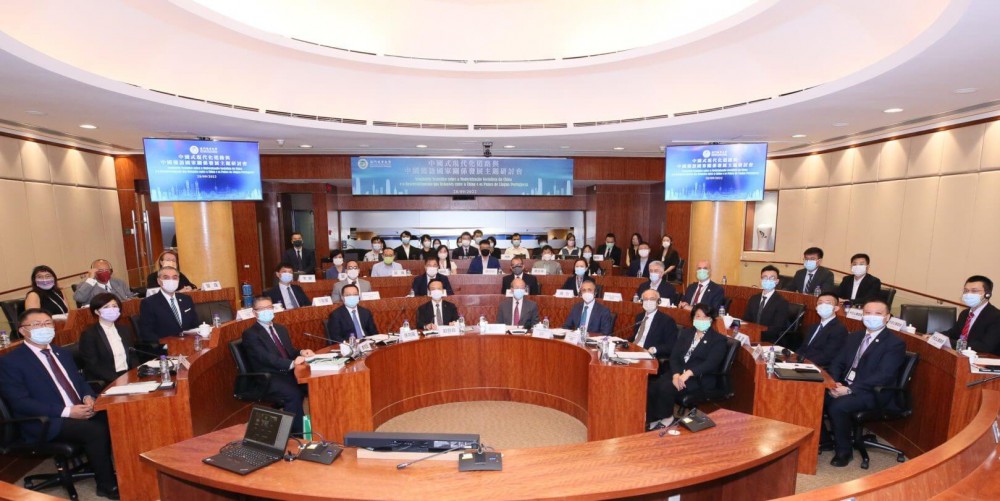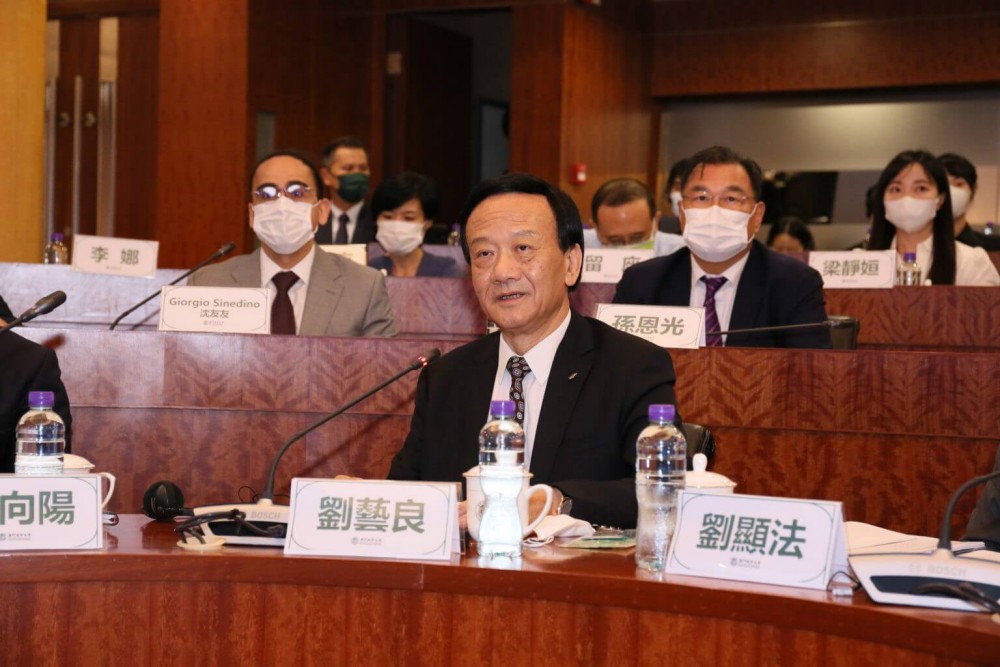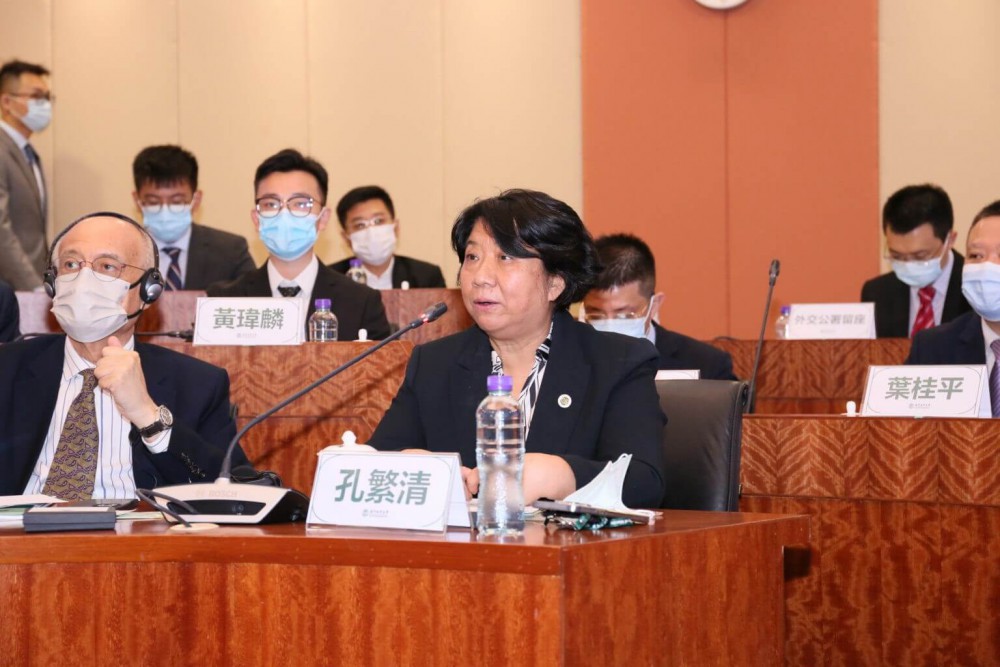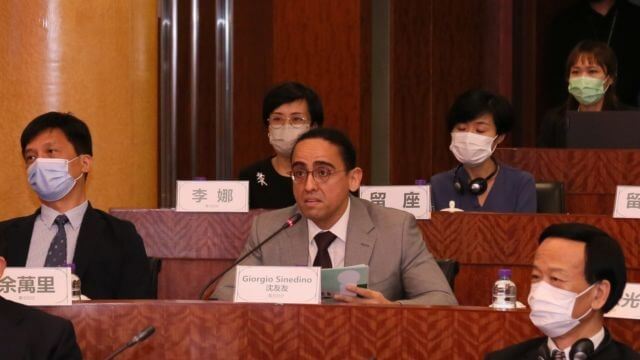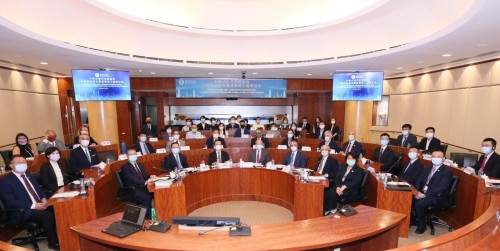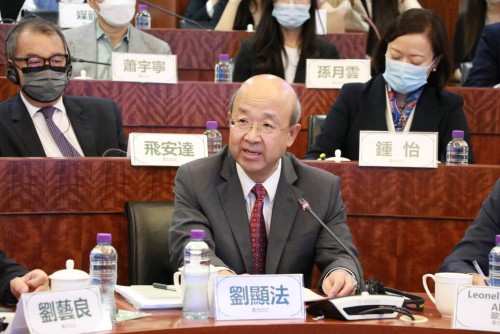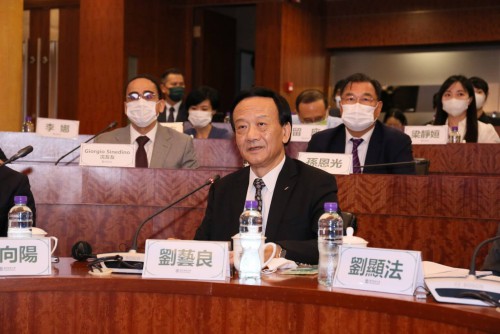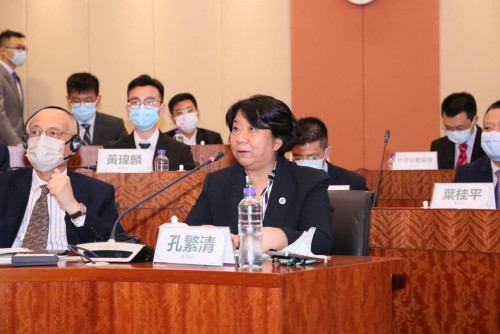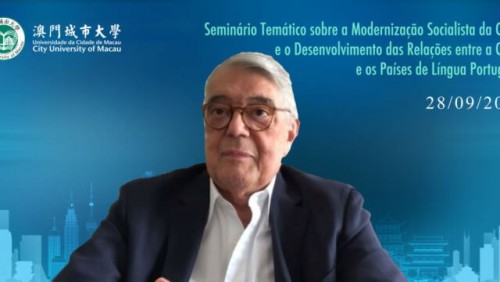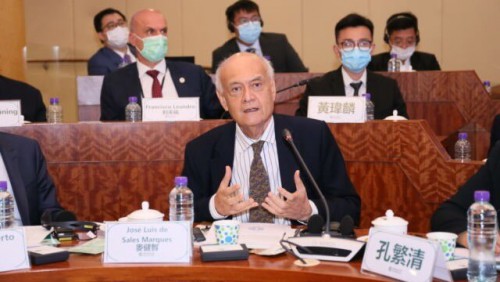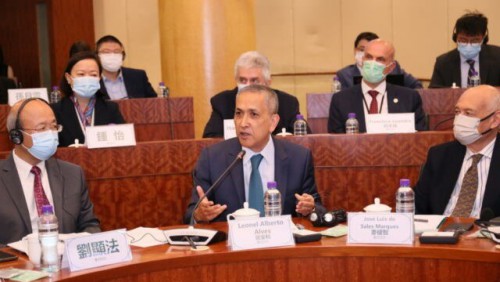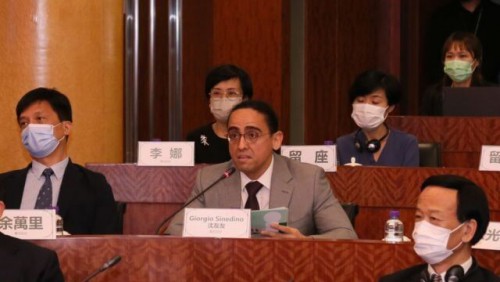On 28 September 2022, under the support of the Office of the Commissioner of the Ministry of Foreign Affairs of the People’s Republic of China in the Macao SAR (Commissioner's Office), the City University of Macau (CityU) held a thematic seminar on China’s Socialist Modernisation: Development of Relations between China and Portuguese-speaking Countries in a hybrid format of online and on-campus setting. Commissioner Liu Xianfa delivered his address at the conference. The seminar invited scholars from Brazil, Portugal, Angola, German, mainland China, and Macao and representatives of thirteen academic institutions to deliver remarks. They were Mr António Martins da Cruz, former Minister of Foreign Affairs of Portugal; Mr Elias Jabbour, author of the China:O socialismo do século XXI I (Translation: China: Socialism in the 21st Century); Dr Wang Huaichao, former Education Director of the Party School of the Central Committee of the CPC cum Director of the Department of Social Science Research. The conference was attended by about 80 people, including representatives from the SAR Government, local think tanks, businesses, and medias, as well as faculty and students from universities.
Commissioner Liu Xianfa said that modernisation had been the common goal of the world since modern times. The Chinese Communist Party (CPC) had led the Chinese people to achieve national independence and liberation and eventually found the path towards prosperity; China’s modernisation path created two miracles of rapid economic development and long-term social stability that was hard to find elsewhere in the world. In his words, China’s modernisation was a modernisation under the CPC’s leadership, a modernisation with a vast population, a modernisation with shared prosperity for all people, a modernisation with a balance between material and spiritual civilisation, a modernisation with a harmonious co-existence between mankind and nature, a modernisation with peaceful development, and a modernisation for mutual benefit.
Commissioner Liu Xianfa stressed that the 20th National Congress signified CPC’s dedication to push forward national rejuvenation through modernisation with Chinese characteristics; build a shared future for mankind with the world; promote human civilisation and create a better world with joint effort. As the bridge between China and the Portuguese-speaking countries, Macao should seize the opportunities brought by the Belt and Road Initiative, the Guangdong-Hong Kong-Macao Greater Bay Area, the Guangdong-Macao Intensive Cooperation Zone, and collaborations between Guangdong province, Hong Kong and Macao, to facilitate moderate diversification of Macao’s economy and promote Macao’s contribute to steering national development. With this momentum, he said Macao’s role as the exchange platform between China and the Portuguese-speaking countries would be further extended and optimised, allowing the two sides to learn from each other and gain mutual benefit from the modernisation process.
In his remark, Mr Lao Ngai Leong, Macao representative to the National People’s Congress and Chairman of the University Foundation, mentioned that remarkable progress had been gained after the establishment of the People’s Republic of China, especially since the implementation of the reform and opening-up policy 40 years ago; the achievements had been well recognised, and the development of China’s modernisation had been regarded. China’s modernisation had contributed to the progress of human civilisation in a new way.
Mr Lao Ngai Leong pointed out that China had long-standing friendly exchanges with Portuguese-speaking countries, and the prospects for pragmatic cooperation were vast. Macao had a unique advantage in promoting exchanges between China and Portuguese-speaking countries as a bridge and exchange platform between the two sides. Macao's platform role would be strengthened with the development of the Guangdong-Hong Kong-Macao Greater Bay Area and the Guangdong-Macao Intensive Cooperation Zone. He pointed out that the seminar had played a positive role in promoting exchanges and mutual understanding between China and Portuguese-speaking countries.
In her Speech, Acting Rector Kong Fanqing expressed gratitude to the Commissioner’s Office for the great support. She said the modernisation of Chinese characteristics was well recognised and would be a driving force for developing relations between China and Portuguese-speaking countries. She hoped the seminar would yield fruitful results and inspire insights that serve the country’s modernised development and linkages with Portuguese-speaking countries, Belt and Road Initiatives, domestic and international economic circulation (dual circulation), and the Greater Bay Area.
During the sharing session, Mr Elias Jabbour gave an overview of his book: China:O socialismo do século XXI I (Translation: China: Socialism in the 21st Century). He said that China in the 21st century had developed a new economic and social form that respects the law of value and is committed to socialist characteristics, creating a miracle of development that had captured the world's attention.
According to his address, Mr António Martins da Cruz said that the Forum for Economic and Trade Co-operation between China and Portuguese-speaking Countries (Forum Macao) stimulated the development of the Portuguese-speaking countries, including Portugal, have significantly benefited from it. Looking ahead, Macao as the exchange platform between the two sides would drive the post-epidemic recovery of the Portuguese-speaking countries.



